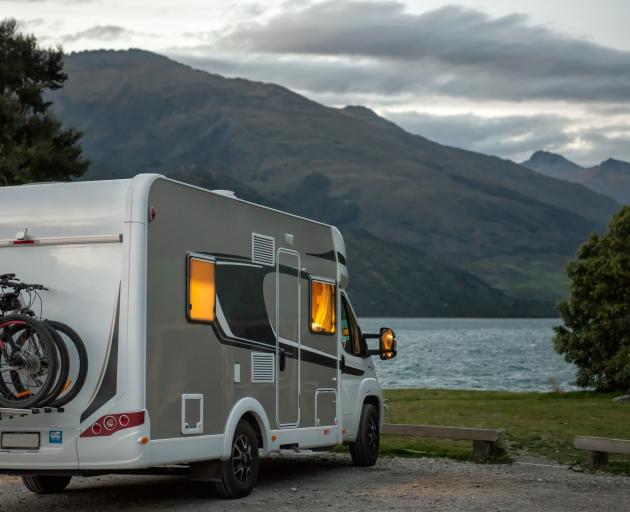
It is no secret that the district is a prime spot for freedom campers, but over the last few years the number of visitors taking part in this has increased.
According to the council, between 2008 and 2018 the estimated number of international visitors engaging in freedom camping in New Zealand rose from 10,000 to 123,000.
As a result, the council has taken steps to draft a bylaw that allows for better management of freedom camping activities across the whole region.
The Freedom Camping Act 2011 permits freedom camping by default on most council land in New Zealand.
While the Act prevents councils from prohibiting freedom camping across all their land, they can create bylaws with rules to manage the activity’s impacts in order to protect areas
Until now the QLDC has not had a bylaw in place but a draft freedom camping bylaw has now been completed.
It was informed by a robust technical assessment that identified and examined which areas of the district needed to be protected.
It includes provisions to manage freedom camping on land controlled or managed by the QLDC to protect the area, access to the area, or the health and safety of visitors.
In a statement, the council said freedom camping would be allowed in certain areas but would be subject to specific conditions.
Limitations would include time restrictions, the use of specified parking spaces, leaving no waste, lighting no fires, and a requirement for vehicles to be certified as self-contained with a toilet and grey-water facilities.
A key proposal would include banning freedom camping on most roads including any on-road vehicle parking spaces within the district’s urban areas.
The bylaw would allow freedom camping with restrictions in 158 carparking spaces across 15 specified areas and on most rural roads subject to restrictions such as how close to the road a freedom camper can park themselves.
The draft bylaw does not propose to regulate freedom camping on any reserve land or privately owned land and camping on reserves will continue to be administered under the Reserves Act 1977.
The full draft has been made public on the QLDC’s Let’s Talk engagement platform and those interested in the proposals are encouraged to express their thoughts.
Two drop-in sessions were held on Monday and Tuesday this week in Frankton and Wānaka and an online webinar is set to take place at noon on Monday, July 28.
The results of the consultation will be considered by a hearing panel made up of councillors and will help to inform any changes to the draft bylaw before it is adopted. It is expected to be finalised and in place before summer.
— APL











